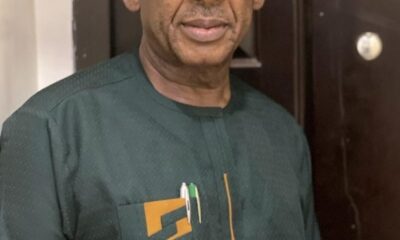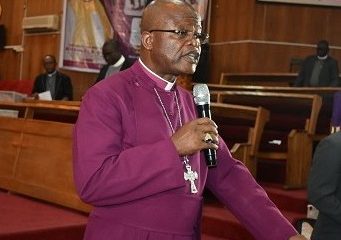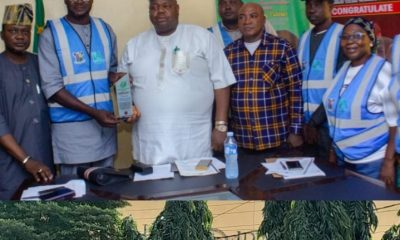By Ezurike Ugochukwu
After the rancorous atmosphere that greeted Senate session in July over its failure to approve electronic transmission of election results that almost tore it apart, the Senate has on Tuesday reconsidered the Act, toeing the path of the Independent National Electoral Commission (INEC).
The red chamber has finally swallowed the hard pill as it has come down to accept that INEC can now determine the best mode of transmission of election results.
INEC it willhwill be recalled haschas to state that Section 160 of the Constitution has done everything it needs to do by empowering it. That that is left is for it to use the power it has under the constitution to achieve its aim
According to the National Commissioner and Chairman, Electoral Operations & Logistics Committee, Prof. Okechukwu Ibeanu,the electoral body has the constitutional mandate to impose duties on the National Communications Commission (NCC) to achieve the electronic transmission of results rather than going to it for approval.
Also in the same vain, the Ogun State Resident Electoral Officer, Olusegun Agbaje had recalled that a law signed by former President Goodluck Jonathan which was not brought out before the 2015 general election, signed before the election. Has backed then to conduct elections using technology.
Agbaje stated,“Even without the National Assembly coming to our aid, the law we have already capacitates us to go ahead to do transmission electronically.”
The Senate has ultimately towed the path of sound reasoning to accept the electronic transmission of results.
The upper legislative chamber also approved that all political parties must use the direct primary mode in picking candidates.
The Senate approved four clauses in the electoral act amendment bill.
During the debate on the act on 15 July, heated argument broke out when the Senate deputy whip, Sabi Abdullahi, proposed an amendment to section 50 (3) of the electoral bill.
“The commission may transmit results of elections by electronic means where and when practicable,” the section reads.
Abdullahi proposed that the Nigerian Communications Commission must certify that national coverage is adequate and secure while the national assembly must approve before the Independent National Electoral Commission can transmit election results.
But Albert Bassey, the Senator representing Akwa Ibom North-East, kicked against the idea and said the initial proposal made by the committee should be retained.
The upper legislative chamber subsequently moved into a closed session following the back and forth over the matter.
Afterwards, the Nigerian Communications Commission said Nigeria does not have adequate network coverage in its 119,000 polling units to enable the electronic transmission of election results.
Speaking on behalf of the NCC team while appearing before the House of Representatives to provide insights into the possibility of transmitting election results via electronic means, the Executive Commissioner, Technical Services, Engineer Ubale Maska, said that in all the polling units studied in 2018, only about 50 per cent had 2G and 3G networks

 Business5 years ago
Business5 years ago
 News6 years ago
News6 years ago
 Crime2 years ago
Crime2 years ago
 News1 year ago
News1 year ago
 News5 years ago
News5 years ago
 Football6 years ago
Football6 years ago


















